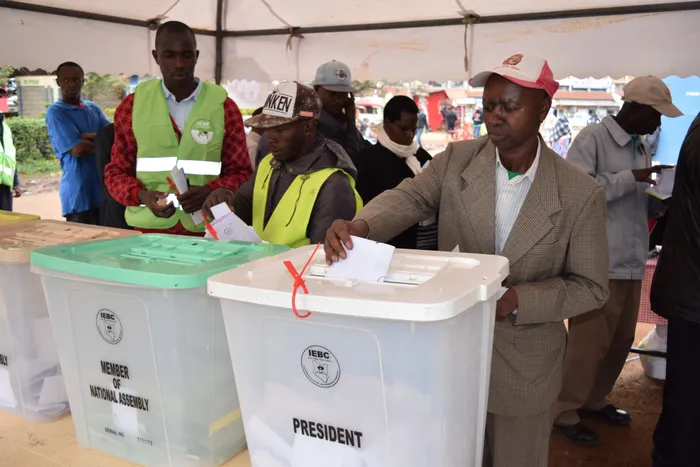Significance of the Kenyan Supreme Court order for a recount

Picture: Allan Mutiso/Xinhua – Opposition leader Raila Odinga, who is seeking the presidency for the fifth time, is contesting the result of a tight vote after election commission chairperson declares Deputy President William Ruto the winner.
By Chad Williams
While the Supreme Court has ordered the electoral commission to grant Raila Odinga access to ballot boxes for 14 polling stations for inspection, scrutiny and recount, it remains to be seen if this move will distabilise the peace that has come with the August 9 elections in Kenya.
Opposition leader Raila Odinga, who is seeking the presidency for the fifth time, is contesting the result of a tight vote after which the election commission chairperson declared Deputy President William Ruto the winner.
Four out of the seven commissioners disowned the result.
The disagreement has raised fears it could trigger the type of violence that followed disputed polls in 2007 and 2017, but I think the Kenyan electorate is mature enough to handle the Supreme Court outcome without violence or intimidation.
According to local Kenyan media, in the ruling, the Supreme Court of Kenya noted that ballot boxes for 14 polling stations would be opened for inspection and recount, within 48 hours.
These polling stations include Nandi Hills and Sinendeti Primary School in Nandi, Belgut, Kapsuser and Chepkutum Primary Schools in Kericho County; Jomvi, Mikindani and Ministry of Water Tanks Polling Stations in Mombasa County.
Others are Mvita, Majengo and Mvita Primary Schools in Mombasa County; Tinderet CONMO, in Nandi County; Jarok, Gathanji and Kiheo Primary School Polling in Nyandarua County.
Odinga has reiterated that he will respect the Supreme Court ruling. Odinga and his running mate Martha Karua on August 22 filed a petition to the country’s top court, challenging the outcome of the August 9 election.
Odinga's legal team lodged a case alleging that a team working for Ruto hacked into the election system and replaced genuine pictures of polling station result forms with fake ones, thus increasing Ruto’s share.
Ruto denied the allegations. The election commission has filed competing responses, with three commissioners supporting the process and four questioning it.
The Supreme Court will also decide if the polling station returns were interfered with and whether the postponement of eight gubernatorial and legislative elections disadvantaged any candidate, said Chief Justice Martha Koome, the president of the seven-member court.
In a recent press conference, Odinga reaffirmed his confidence in the Supreme Court ruling despite saying he won the presidential election.
Odinga said he had proof that he had won the election, which requires a candidate to receive 50 percent of the vote plus one. He wants a recount.
According to a copy of the 72-page petition seen by AFP, Odinga’s team alleges that IEBC chairperson Wafula Chebukati failed to tally about 140,000 votes.
As a result, Ruto “did not meet the constitutional threshold of 50 percent plus 1 of the valid votes cast” — a requirement for him to be declared the winner.
Judges now have less than a week to issue a ruling. If they order an annulment, a new vote must be held within 60 days.
Williams is a multimedia journalist with The African News Agency
This article is original to the The African. To republish, see terms and conditions.
Related Topics: